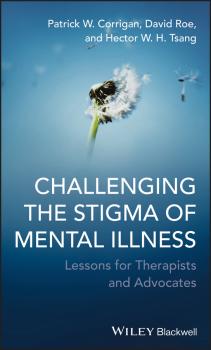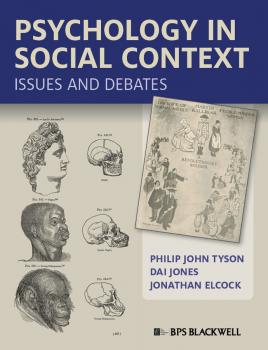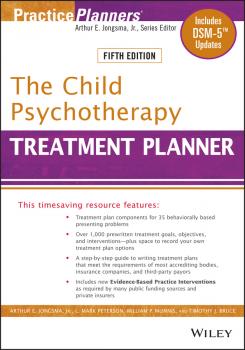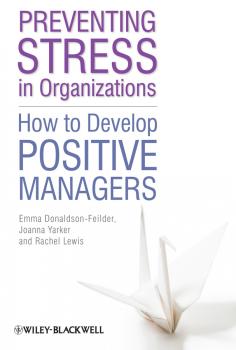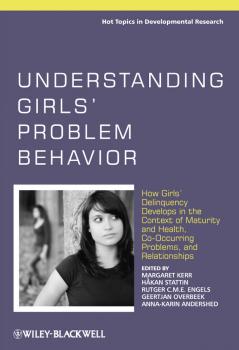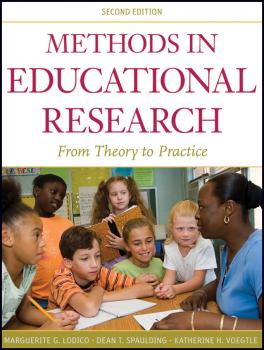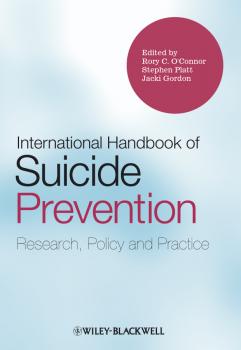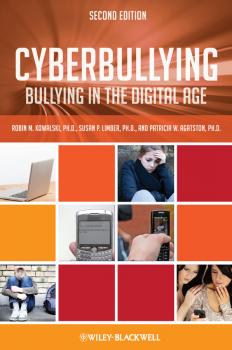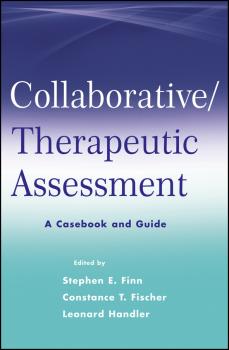Общая психология
Различные книги в жанре Общая психологияChallenging the Stigma of Mental Illness. Lessons for Therapists and Advocates
Challenging the Stigma of Mental Illness offers practical strategies for addressing the harmful effects of stigma attached to mental illness. It considers both major forms of stigma: public stigma, which is prejudice and discrimination endorsed by the general population; and self-stigma, the loss of self-esteem and efficacy that occurs when an individual internalizes prejudice and discrimination. Invaluable guide for professionals and volunteers working in any capacity to challenge discrimination against mental illness Contains practical worksheets and intervention guidelines to facilitate the implementation of specific anti-stigma approaches Authors are highly experienced and respected experts in the field of mental illness stigma research
Psychology in Social Context. Issues and Debates
Psychology in Social Context: Issues and Debates provides a critical perspective on debates and controversies that have divided opinion within psychology both past and present. Explores the history of psychology through examples of classic and contemporary debates that have split the discipline and sparked change, including race and IQ, psychology and gender, ethical issues in psychology, parapsychology and the nature-nurture debate Represents a unique approach to studying the nature of psychology by combining historical controversies with contemporary debates within the discipline Sets out a clear view of psychology as a reflexive human science, embedded in and shaped by particular socio-historical contexts Written in an accessible style using a range of pedagogical features – such as set learning outcomes, self-test questions, and further reading suggestions at the end of each chapter
The Child Psychotherapy Treatment Planner. Includes DSM-5 Updates
A time-saving resource, fully revised to meet the changing needs of mental health professionals The Child Psychotherapy Treatment Planner, Fifth Edition provides all the elements necessary to quickly and easily develop formal treatment plans that satisfy the demands of HMOs, managed care companies, third-party payors, and state and federal agencies. New edition features empirically supported, evidence-based treatment interventions including anxiety, attachment disorder, gender identity disorder, and more Organized around 35 behaviorally based presenting problems including academic problems, blended family problems, children of divorce, ADHD, and more Over 1,000 prewritten treatment goals, objectives, and interventions—plus space to record your own treatment plan options Easy-to-use reference format helps locate treatment plan components by behavioral problem Includes a sample treatment plan that conforms to the requirements of most third-party payors and accrediting agencies including CARF, The Joint Commission (TJC), COA, and the NCQA
Preventing Stress in Organizations. How to Develop Positive Managers
Preventing Stress in Organizations:How to Develop Positive Managersoffers an innovative, evidence-based approach to help managers prevent and reduce workplace stress in their staff. Winner of the 2013 BPS Book Award – Practitioner Text category Provides information on the critical skills managers must develop in order to prevent stress in their staff, and the key ongoing behaviours that promote a healthy work environment Shows practitioners in occupational psychology, HR, Health and Safety and related professions how positive management can be integrated into an organization’s existing practices and processes Serves as an essential guide for managers themselves on how to incorporate proven stress management skills into their everyday interactions with team members Balances rigorous research grounding with real-world vignettes, case studies and exercises
Understanding Girls' Problem Behavior. How Girls' Delinquency Develops in the Context of Maturity and Health, Co-occurring Problems, and Relationships
Understanding Girls' Problem Behavior presents an overview of recent studies by leading researchers into key aspects of the development of problem behavior in girls. Integrates interdisciplinary research into girls’ problem behaviors (e.g. aggression, antisocial behavior, rule breaking) Unique in seeking to understand girls’ problem behaviors in their own right Follows the maturing girl from adolescence to adulthood, concluding at the point where she herself becomes a parent and forms new relationships Gives attention to the critical contexts of problem behavior development—society and neighborhood, as well as family and peer contexts
Methods in Educational Research. From Theory to Practice
Methods in Educational Research Methods in Educational Research is designed to prepare students for the real world of educational research. It focuses on scientifically-based methods, school accountability, and the professional demands of the twenty-first century, empowering researchers to take an active role in conducting research in their classrooms, districts, and the greater educational community. Like the first edition, this edition helps students, educators, and researchers develop a broad and deep understanding of research methodologies. It includes substantial new content on the impact of No Child Left Behind legislation, school reform, quantitative and qualitative methodologies, logic modeling, action research, and other areas. Special features to assist the teaching and learning processes include vignettes illustrating research tied to practice, suggested readings at the end of each chapter, and discussion questions to reinforce chapter content. Praise for the Previous Edition «A new attempt to make this subject more relevant and appealing to students. Most striking is how useful this book is because it is really grounded in educational research. It is very well written and quite relevant for educational researchers or for the student hoping to become one.» -PsycCRITIQUES/American Psychological Association «I applaud the authors for their attempt to cover a wide range of material. The straightforward language of the book helps make the material understandable for readers.» -Journal of MultiDisciplinary Evaluation
International Handbook of Suicide Prevention. Research, Policy and Practice
The International Handbook of Suicide Prevention showcases the latest cutting-edge research from the world’s leading authorities, and highlights policy and practice implications for the prevention of suicide. Brings together the world’s leading authorities on suicidal behaviour, renowned for their suicide prevention research, policy and practice Addresses the key questions of why people attempt suicide, the best interventions, treatments and care for those at risk, and the key international challenges in trying to prevent suicide Describes up-to-date, theoretically-derived and evidence-based research and practice from across the globe, which will have implications across countries, cultures and the lifespan
Cyberbullying in the Global Playground. Research from International Perspectives
Cyberbullying in the Global Playground provides the first global, in-depth analysis of the emerging phenomenon of cyberbullying. Offers the first thorough comparative account of recent research into the emerging global phenomenon of cyberbullying Provides an international perspective on the prevalence and nature of cyberbullying Presents recent authoritative research within a critical perspective, drawing out theoretical and practical implications for policy and practice May be used to help design intervention, evaluation, and policy strategies for effective efforts to combat the international phenomenon of cyberbullying
Cyberbullying. Bullying in the Digital Age
Psychologists explore the reality of cyberbullies Millions of children are affected by bullies each year. Advances in social media, email, instant messaging, and cell phones, however, have moved bullying from a schoolyard fear to a constant threat. The second edition of Cyberbullying offers the most current information on this constantly-evolving issue and outlines the unique concerns and challenges it raises for children, parents, and educators. Authored by psychologists who are internationally recognized as experts in this field, the text uses the latest research in this area to provide an updated, reliable text ideal for parents and educators concerned about the cyberbullying phenomenon.
Collaborative / Therapeutic Assessment. A Casebook and Guide
A guide to conducting Collaborative/Therapeutic Assessment to promote client growth Mental health professionals are increasingly enthusiastic about and ready to use psychological test data, research, and theory in life-relevant ways to improve diagnosis, client care, and treatment outcomes. With Collaborative/Therapeutic Assessment (C/TA), clients participate actively with the assessor in exploring how their test scores and patterns reflect who they are in their daily lives and how they can learn to help themselves cope with life's challenges. Using a case study approach to demonstrate how to apply C/TA in practice, Collaborative/Therapeutic Assessment provides practitioners with a variety of flexible and adaptable case examples featuring adults, children, adolescents, couples, and families from different backgrounds in need of treatment for assorted concerns. Designed for both experienced and novice clinicians, the book begins with a brief history of C/TA, and provides clear definitions of the distinctions among many common approaches. It uniquely presents: Eighteen diverse C/TA assessments covering: depression, multiple suicide attempts, severe abuse, dissociation, an adolescent psychiatric ward, custody evaluation, a couple in crisis, and collaborative neuropsychology Guidance on how both client and clinician can agree on the best course of action through joint exploration of assessment procedures, results, and implications Closely related approaches to psychological testing, including Individualized Assessment, Collaborative Assessment, Therapeutic Model of Assessment, Collaborative/Therapeutic Neuropsychological Assessment, and Rorschach-based psychotherapy Clearly labeled Teaching Points in each chapter Collaborative/Therapeutic Assessment provides psychologists in all areas of assessment, and at all levels of experience, with powerful C/TA examples that can dramatically illuminate and improve clients' lives.
